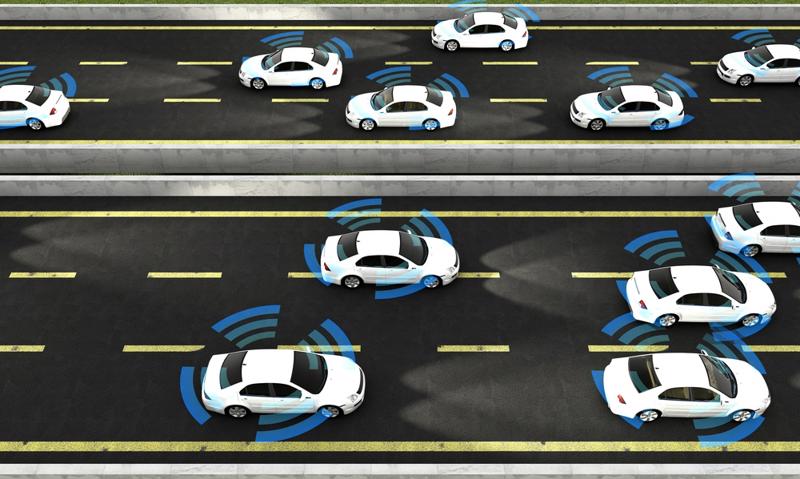

In recent years, autonomous vehicles have increasingly garnered headlines - and programs to perfect their operations have been making serious progress over that time. However, much like many other aspects of society, it seems that the novel coronavirus pandemic has seriously affected many companies' plans on this front - while others continue to forge ahead.
A number of major developers in this field announced at various points in March that they would suspend testing of their automated vehicle programs in live traffic, according to VentureBeat. This is for a simple reason: Those vehicles - controlled by Uber, Cruise, Aurora, Argo AI and Lyft - require someone in the driver's seat in case the AI platform piloting them fails, and they wanted to limit the number of people coming into contact with one another.
But for these companies, a pause in operations that could last for months on end presents a major issue, the report said. Simply put, these programs can only be refined through real-world testing and data collection, meaning that there isn't much opportunity to make progress in getting closer to perfecting the necessary AI at this time.
Another major player delays
Of course, it's not just popular ridesharing companies that are working on driverless vehicle AI platforms, as major automakers are feeling the pinch these days as well. Tech Crunch reported that in late April, Ford announced in its quarterly earnings call that it had taken a $2-billion loss in the first quarter, and would therefore have to delay the launch of its autonomous vehicle program by one year, pushing back a proposed 2021 starting point until 2022.
The AI company Argo, which Ford has invested in heavily, has been working with the automaking titan on pilot programs with major names like Walmart in retail, Domino's in food service, and Postmates in consumer-to-consumer delivery, the report said. However, one of the unique impacts Ford faces here is that it is trying to simultaneously develop that AI platform as well as other, siloed-off technology that would have then been combined for the 2021 launch.

What comes next?
Now, it remains unclear how things will progress on this front, Tech Crunch reported. That's because Ford does not even know how widespread the myriad effects of the pandemic will be, or what the specific impact on the company's bottom line will be. However, Ford has a partnership with Volkswagen's VW Group, and the latter organization is apparently on track to make another scheduled sizable investment in Argo in the near future.
"Taking the time to research changes in customer behaviors provides Ford with an opportunity to evaluate and potentially change our go-to-market strategy to meet new consumer demands," the company said. "As part of this evaluation, we also want to make sure the customer experience we are building offers people peace of mind knowing they, or their packages, are in a safe and protected environment inside our vehicles."
Some staying the course
While many developers are pulling their automated vehicles off the road, the aforementioned Waymo has plans to continue its dev cycle despite that halt to real-world operations, the company said in a release. The company has set up its AI system so that it can be tested continuously, 24/7, in simulated settings.
"Through simulations, vehicles can drive roughly 20 million miles per day."
In announcing the change, the company noted that in some ways, real-world driving is an obvious benefit to development, but in others, it can be limiting. For instance, through simulations, its vehicles can drive roughly 20 million miles per day, versus perhaps a few hundred for any given vehicle in the real world. Indeed, the company has so far simulated some 15 billion miles of virtual driving, all in fully mapped virtual recreations of 25 American cities.
Moreover, these simulations can be used to recreate large numbers of situations that are rare in real life (also known as "edge cases") so the AI system gets plenty of practice reading and reacting to these scenarios, even as physical vehicles are left in a parking lot.
A shifting market
Of course, Ford's consideration of how consumer and business habits might change in the wake of the pandemic shows why the AV market is an important consideration in all these developments, according to FreightWaves. Especially with beefed-up regulations about how much time drivers can spend behind the wheel of big rigs, similar changes might soon come for other driver-based corners of the market.
Even if that means more companies adopt the idea of "platooning" - virtually tethering one or more driverless vehicles to one controlled by a human operator - it's likely that more widespread use of these platforms is coming, the report said. Moreover, it's increasingly obvious that the demand could be driven by how much things are changing today, pushing companies to develop more quickly and be ready to pivot out of the mere testing phase within the next few years.
Thinking about the near future
Indeed, the CEO of a China-based automated platform developer recently told CNBC that the widespread use of such vehicles could become more prevalent "very soon," especially because the industry in the Far East is looking at some $1 trillion in investment at the same time as its U.S. counterparts are also making big strides.
The eventual goal is obviously to collect and implement enough actionable data that these platforms are far safer than they seem to be today, and with an increasingly global industry devoted to it, that could happen sooner than later, regardless of the slowdown in operations necessitated by the coronavirus outbreak.
Autonomous vehicles require advanced braking systems to get the most out of their programming. Greening Testing Laboratories is a fully certified brake testing lab that provides a variety of brake testing services worldwide. Contact Greening Associates for a complimentary consultation.